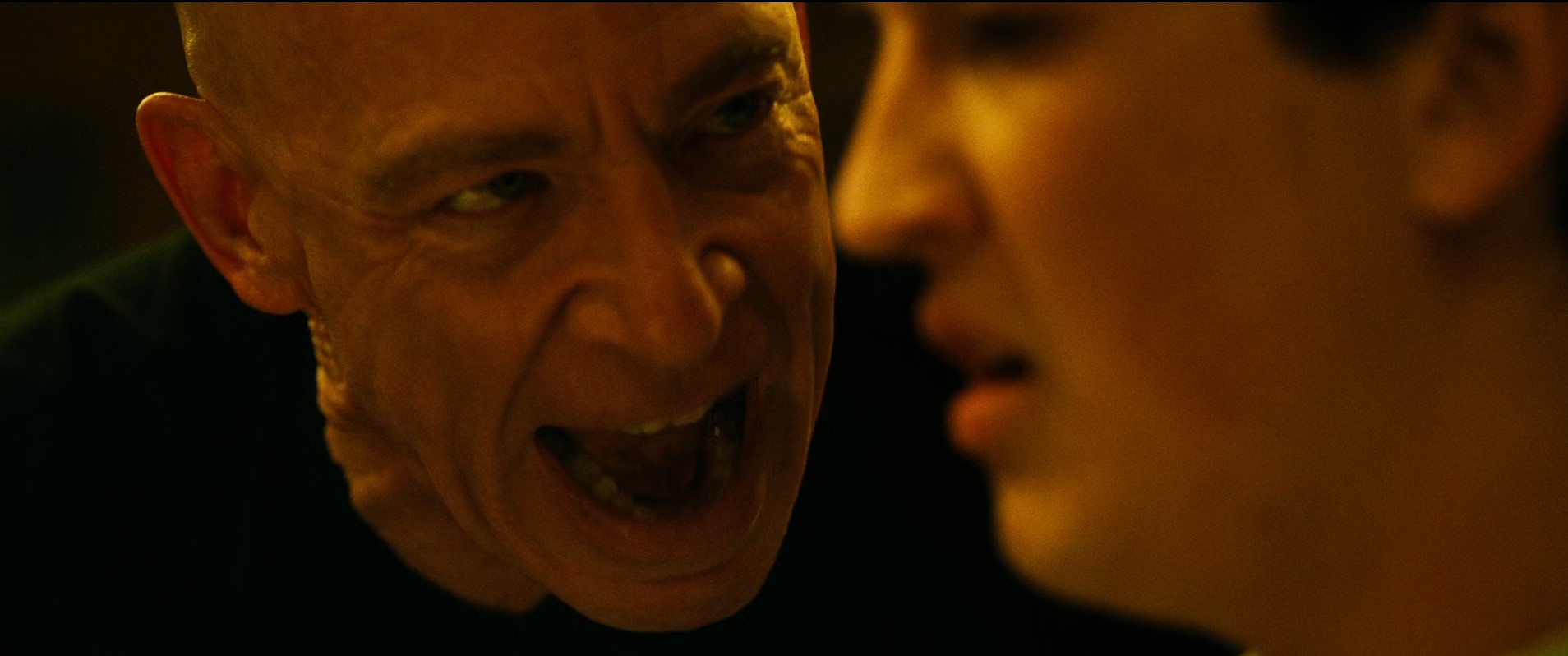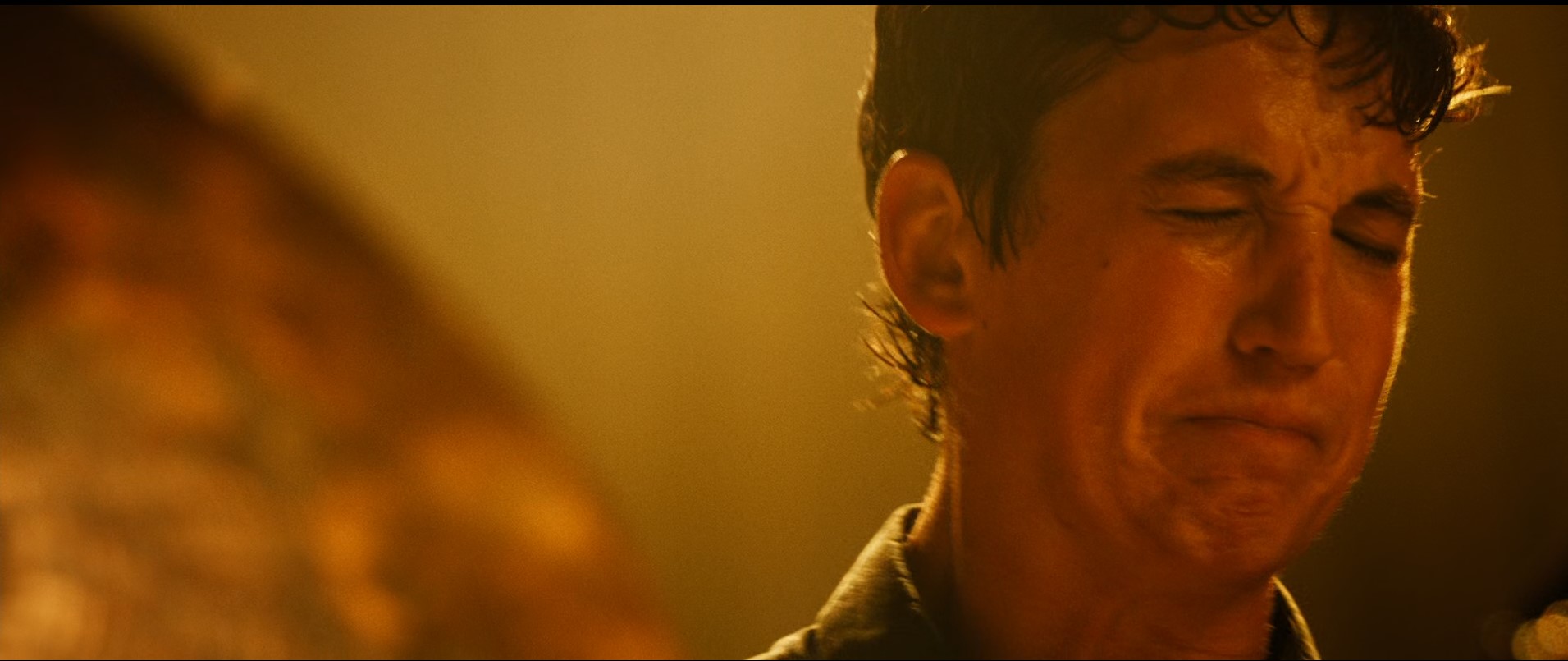The movie follows Andrew Neiman as he develops as a drummer through blood, sweat, and hard work under the tutelage of his harsh professor, Terence Fletcher. The movie raises questions about whether Fletcher’s harsh teaching philosophy is right and whether genius is born or made, and the suspenseful plot leaves a lasting impression on the audience.
The movie Whiplash was written and directed by Damien Chazelle and has been on everyone’s lips. I love going to the movies, but I’ve never been a big fan of the music movie genre, so when I saw the poster featuring the main character, Andrew Neiman, playing the drums, I was a little hesitant about whether or not to watch the movie. But with all the controversy and buzz, I finally gave in to my curiosity.
Whiplash follows Andrew Neiman, a freshman at one of America’s top music schools, Shaper, who meets Professor Terence Fletcher, a professor with an extreme and infamous teaching style, and is transformed into a drum prodigy. Andrew Neiman is a mediocre drummer, until one day he is spotted by Professor Terence Fletcher, who is looking for a second drummer for his band. This is where the movie’s tension begins in earnest.

Before the first ensemble practice, Professor Fletcher advises Andrew to relax and play, but once practice begins, he takes a turn for the worse. Fletcher uses harsh methods to extract passion for music, going beyond mere instruction to physical violence and verbal insults. When he slaps Andrew across the face for not keeping tempo, the scene shocks the audience and makes it clear that this is not just a music movie. Fletcher’s philosophy is based on the idea that “when you’re pushed to your limits, the ones who endure and overcome them are the ones with true talent.
Spurred on by Fletcher’s provocation, Andrew literally puts his blood and sweat into his practice. In the movie, his hand holding the drumsticks is covered in blood blisters, and he doesn’t stop practicing when another blister forms on top of it. The movie shows his passion for music and the pain he goes through to develop his prodigious talent, leaving the audience with the question of how far his passion will go.

However, Fletcher’s harsh training regimen eventually takes its toll on Andrew, and he is expelled from school after an accident during a performance. In the process, Fletcher is also kicked out of school when his brutal teaching methods are exposed. In this scene, the movie goes beyond a simple success story and asks deep questions about the relationship between education and talent. The audience is left wondering if extreme methods are necessary to bring out the best in talent, leading to a philosophical discussion about education.
Time passes and Andrew runs into Fletcher playing in a jazz bar, where Fletcher confesses to Andrew that what he really wanted to do at Shaper was not just conduct, but to discover great musicians like Louis Armstrong and Charlie Parker. This scene explains the background of Fletcher’s coercive teaching style, and shows that his methods were not simply brutal, but thorough and purposeful. Fletcher invites Andrew to join him for one big performance and gives him a song to play, but on the day of the concert, Andrew has a major crisis when he’s forced to play a new piece instead of the one he’d prepared.
Despite his initial panic, Andrew perseveres and delivers his best drumming performance yet, outplaying Fletcher’s vengeful spirit. After the performance, Fletcher looks at Andrew with a satisfied smile, and the movie ends with this scene. It’s a powerful ending to the movie that shocks and moves the audience at the same time, and keeps you on the edge of your seat until the very end.
After I finished watching the movie, I was left in a daze for a long time – was Fletcher’s philosophy that “you only get the best out of people when you push them to their limits” correct? It made me think about a number of things. The question of whether genius is born or created through endless hard work was an underlying theme throughout the movie.
There’s a scene in the middle of the movie where Fletcher says that there is no more damaging word than “Good Job.” His argument is that when people hear “Good Job,” they settle for it and don’t rise to greater heights. While there is indeed research on the positive impact of praise on productivity, Fletcher’s philosophy is interesting in that it places more value on challenge than praise. Of course, Fletcher’s approach won’t work for every student, but in Andrew’s case, it helped him reach his potential.
As Thomas Edison once said, “Genius is the talent to keep trying,” and Andrew Neiman had that talent. The movie shows that genius isn’t just a gift, and emphasizes the insane focus, hard work, and pain that goes into it. The scenes in which Andrew breaks up with his girlfriend and refuses to stop practicing until his hands bleed are a great example of this insanity.
The title Whiplash is both the title of the jazz piece Andrew plays in the movie and the English word meaning “to whip”. The title encapsulates the relationship between a master who pushes to the limit, and a pupil who pushes beyond that limit, and it fits the tense pacing and themes of the movie.